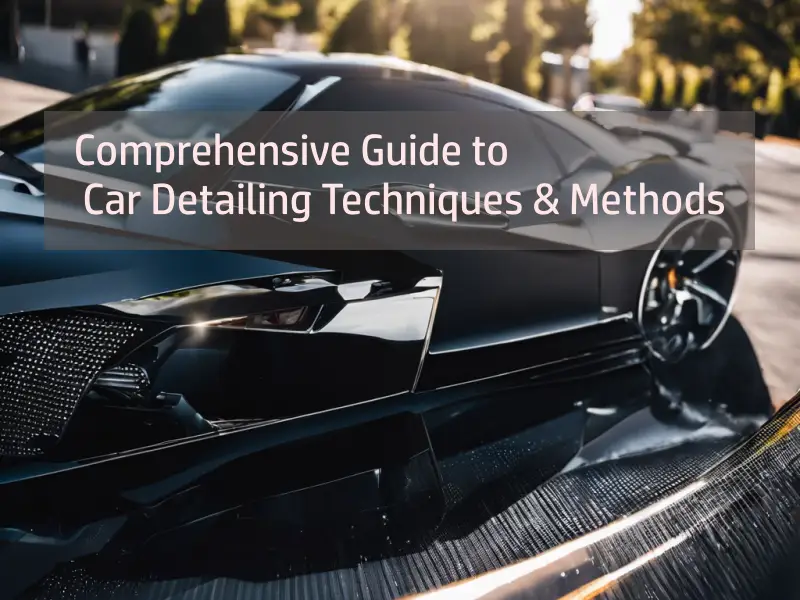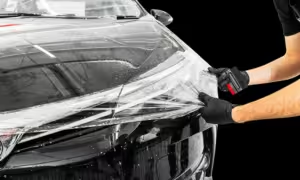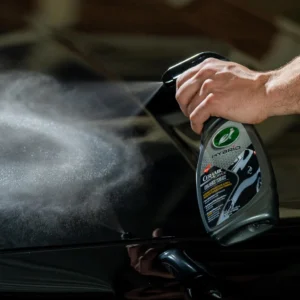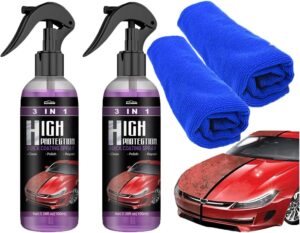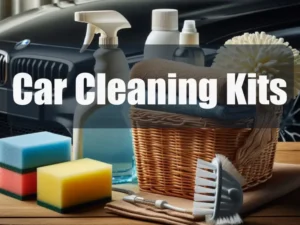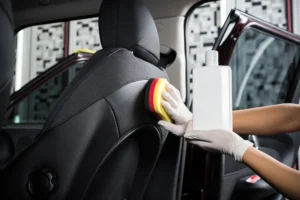Explore essential car detailing techniques that maintain your vehicle’s pristine condition and increase its longevity. Some of the key takeaways for this blog are:
- Master both interior and exterior car detailing techniques.
- Gain insights into professional tools and methods.
- Learn how regular detailing can enhance your vehicle’s value and appeal.
What is Car Detailing?
Car detailing involves meticulously cleaning, restoring, and finishing a vehicle to achieve a pristine level of detail that goes beyond standard cleaning. It’s designed to make the car look as good as new and protect it from the elements.
The Importance of Regular Car Detailing

Detailing isn’t just about aesthetics; it’s crucial for maintaining the vehicle’s condition, preventing wear, and protecting its value. Regular detailing helps to remove contaminants that may damage the car’s paint, upholstery, and other materials.
Read Our Blog: How Long Does It Take To Detail Car
Interior Car Detailing Techniques
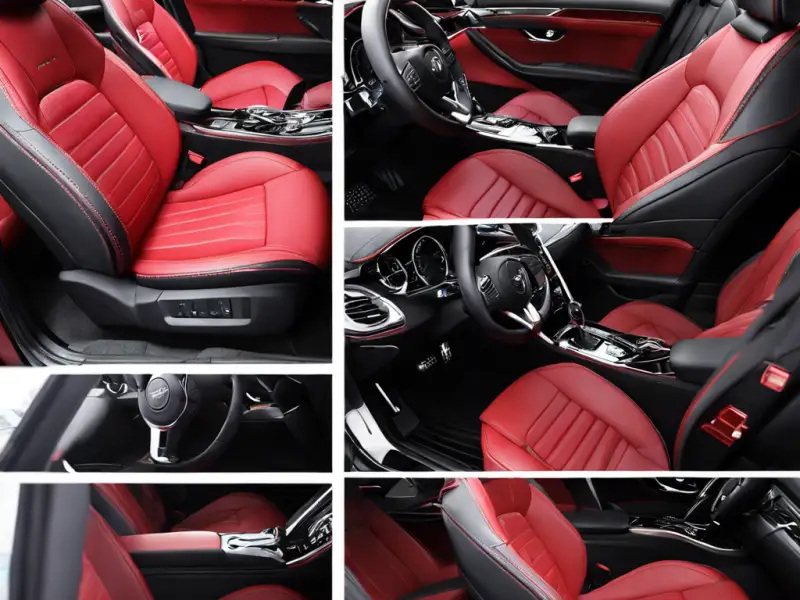

A clean interior is vital for a pleasant driving experience and maintaining health standards. Here’s how you can detail your car’s interior like a pro:
Vacuuming and Cleaning
- Tools Needed: Vacuum with attachments, microfiber cloths.
- Method: Vacuum all surfaces thoroughly, including seats, mats, and hard-to-reach areas to remove dust and debris. Clean all hard surfaces with a suitable cleaner and microfiber cloth to avoid scratches.
Upholstery Care
- Tools Needed: Upholstery cleaner, soft brushes, microfiber towels.
- Method: Treat stains on fabric seats with upholstery cleaner and a brush. Use leather conditioner for leather seats to keep them hydrated and prevent cracks.
Deep Cleaning Techniques
- Shampooing Carpets: Use a specialized car shampoo machine or hire professional services for deep cleaning carpets and removing stubborn stains.
- Cleaning Air Vents: Employ soft brushes and compressed air to remove dust from air vents, enhancing air quality inside the car.
Exterior Car Detailing Techniques


The exterior requires regular care to maintain its shine and protect it from environmental damage. Here are key techniques:
Washing and Drying
- Tools Needed: Car shampoo, buckets, microfiber towels.
- Method: Use the two-bucket method to wash your car. One bucket for clean, soapy water and another for rinsing your cloth. Dry with a clean microfiber towel to prevent water spots.
Waxing and Sealing
- Tools Needed: Car wax, applicator pads.
- Method: Apply car wax in a thin layer using an applicator pad. Buff with a microfiber towel until shiny. This layer helps protect the paint from UV rays and contaminants.
Protective Coatings
- Ceramic Coatings: Discuss the advantages of ceramic coatings for long-term protection.
- Paint Protection Films: Explain how these films guard against scratches and environmental damages.
When to Choose Professional Detailing
While DIY detailing is effective for regular maintenance, professional detailing services like those provided by Autocare Anywhere in Plano, TX, offer deep cleaning and protective measures that are difficult to achieve at home.
Benefits of Professional Detailing
- Expertise: Professional detailers use advanced techniques and products.
- Comprehensive Care: Professionals can offer services like engine detailing and paint correction that are not typically feasible for DIY.
Maintaining Your Detailed Car
After detailing, regular maintenance is crucial to keep your car looking its best.
Routine Maintenance Tips
- Regular Inspections: Frequently check your vehicle for any new damages or wear.
- Clean Regularly: A quick wash every week prevents buildup of dirt and contaminants that can damage the paint over time.
Seasonal Care
- Winter Protection: Use anti-freeze washes and ensure seals are protected against freezing.
- Summer Care: Regularly apply a UV protectant to exposed surfaces to prevent fading and cracking from sun exposure.
Conclusion
Car detailing is an essential practice for anyone looking to maintain or increase the value of their vehicle. It involves a dedicated approach to cleaning and protection, ensuring that every aspect of your car is meticulously cared for. Whether you choose to DIY or go for professional services like those offered by Autocare Anywhere in Plano, TX, regular detailing is key to a long-lasting, beautiful vehicle. Engage with experts and use the right products to keep your car in showroom condition.
FAQs
What is the difference between car washing and car detailing?
- Car washing primarily focuses on the exterior surface cleaning of the vehicle, often including a quick wash of the exterior and vacuuming of the interior. Car detailing, on the other hand, involves deep cleaning both the interior and exterior of the vehicle, including polishing, waxing, and the use of specialized products to protect and restore the vehicle to near-showroom quality.
How often should I detail my car?
The frequency of car detailing can vary based on several factors such as the vehicle’s exposure to the environment, the amount of use it gets, and personal preference. However, it is generally recommended to detail your car every 4-6 months to keep it in optimal condition and maintain its value.
Can detailing remove scratches from my car?
Detailing can often minimize the appearance of light scratches and swirl marks through polishing and the correct application of waxes or sealants. However, deep scratches that have penetrated the paint might require more extensive repairs such as paint correction or touch-ups by a professional.
What are the benefits of applying a ceramic coating during car detailing?
A ceramic coating provides a strong, protective surface on your car’s exterior, helping to shield it from various substances such as dirt, water, and UV rays. This coating can make cleaning easier and extend the longevity of the paintwork by reducing the risk of fading, oxidation, and chemical etching.
Is it worth getting my car professionally detailed?
Professional detailing is worth considering if you are looking to preserve or increase the resale value of your vehicle, ensure thorough and meticulous cleaning, or protect it using high-quality products and techniques that might not be readily available for DIY detailing. Professional detailers can also offer specialized services that tackle more complex issues like odor removal, paint correction, and engine detailing.

